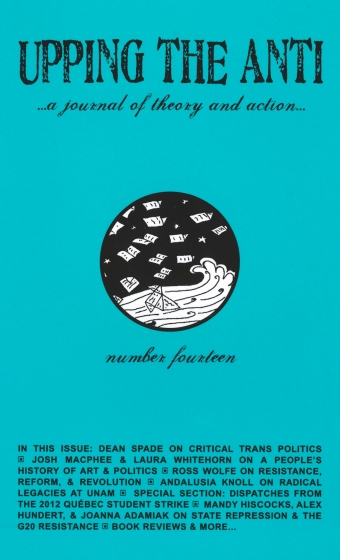Prison Abolition and "Sex Crimes"
Dear UTA,
For those of us who believe in prison abolition, how to deal with people labelled “sex offenders” is a difficult question. Although we recognize the failure of prisons to keep us, our families, and our communities safe, we have not yet implemented widespread programs and initiatives that address, let alone prevent, violence – particularly violence against the more vulnerable in our midst. Sexual violence is a particularly thorny issue, especially for those of us who have children in our lives. In “‘Worst of the Worst’? Queer Investments in Challenging Sex Offender Registries,” Erica R. Meiners, Liam Michaud, Josh Pavan, and Bridget Simpson tackle this question, taking a stance that even those who identify as anarchists, anti-authoritarians, and abolitionists often shy away from.
As a prison abolitionist and a mother, I was particularly interested in the arguments that Sexual Offender Registries (SORs), while ostensibly designed to prevent sexual violence against children, do nothing to keep children safe. The authors note that the focus on “stranger danger” obscures the fact that most perpetrators of sexual and other forms of violence against children are family members. Here I would add that those who commit sexual and other forms of violence against children can also be those who are known to them and trusted by their parents, as demonstrated by the years, if not decades, of sexual abuse by Penn State University’s assistant football coach Jerry Sandusky inflicted upon the boys in his youth program.
The authors also state, “Poll after poll demonstrates that the public perceives pedophilia to be the greatest threat to childhood safety.” As a parent, I worry that my child will experience sexual violence. I know that this fear weighs heavily on the minds of many other parents as well. I wish that the authors had paused here to give some indication of how to address and counter these fears, either from their own experience, research, or interviews. For those of us who worry about the safety of the children in our lives, it is not enough to point out that SORs do not prevent violence; we need to know how to keep our children safe.
As a parent involved in social justice organizing in New York City, it’s not an easy question. I know at least two people who have been arrested after committing sexual harm to children. Both spent some time behind bars and both have since been released. One is in the SOR and has said that he has had to move frequently because his house has been picketed by people who do not want him on their block or in their neighbourhood (and probably not on their planet). The other, as far as I know, is not on the SOR. Both people have been present in the city’s different social justice circles. As someone who knows their past history of sexually hurting children, how do I help ensure that their presence, particularly in spaces in which there are children and youth, does not lead to further harm? At the same time, how much do I obstruct their chances at healing and recovery if I make other parents and caregivers aware of their past actions? If I do not say anything and a child is harmed, then what? How can I keep my community safe while not demonizing these people and pushing them away from potential sources of support and healing?
While “‘Worst of the Worst’” doesn’t provide answers – or even possible scenarios to address this particular issue – it does provide several real-life programs that are organizing to address sexual violence without relying on policing, prisons, or SORs. For Generation Five, which works to address child sexual abuse, what does the process of building community-based reconciliation and developing practices of accountability look like? What are the steps? How long does the process take? Is it a life-long commitment or is there a definite end point? What follow-up, if any, is there?
Of course, one article can’t cover all of these questions, but it pushes us to recognize the many flaws in relying on systems of violence, such as policing, prisons, and SORs, to address violence. It also challenges us to grapple with these uncomfortable, often frightening questions that come with building the world we want to see.
For a world where we don’t need cages to end violence,
Vikki Law
New York, NY

